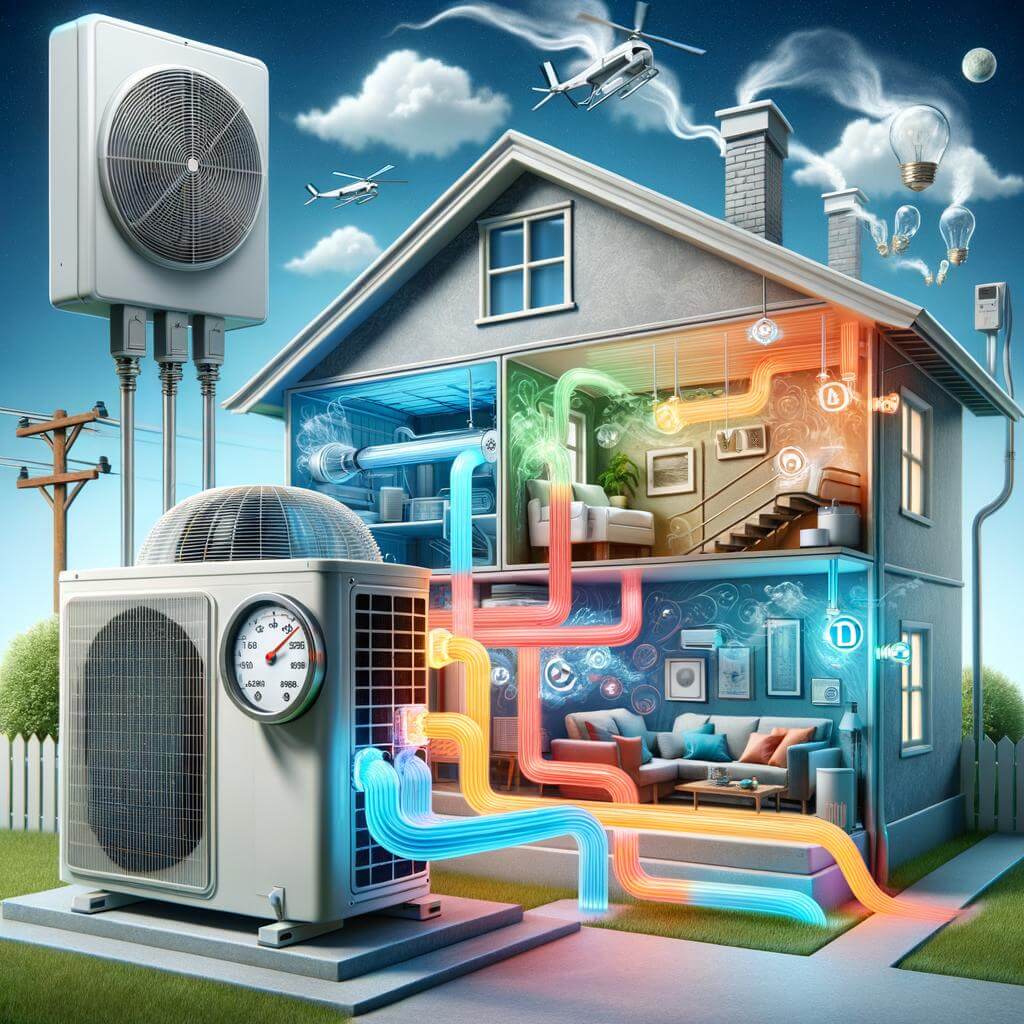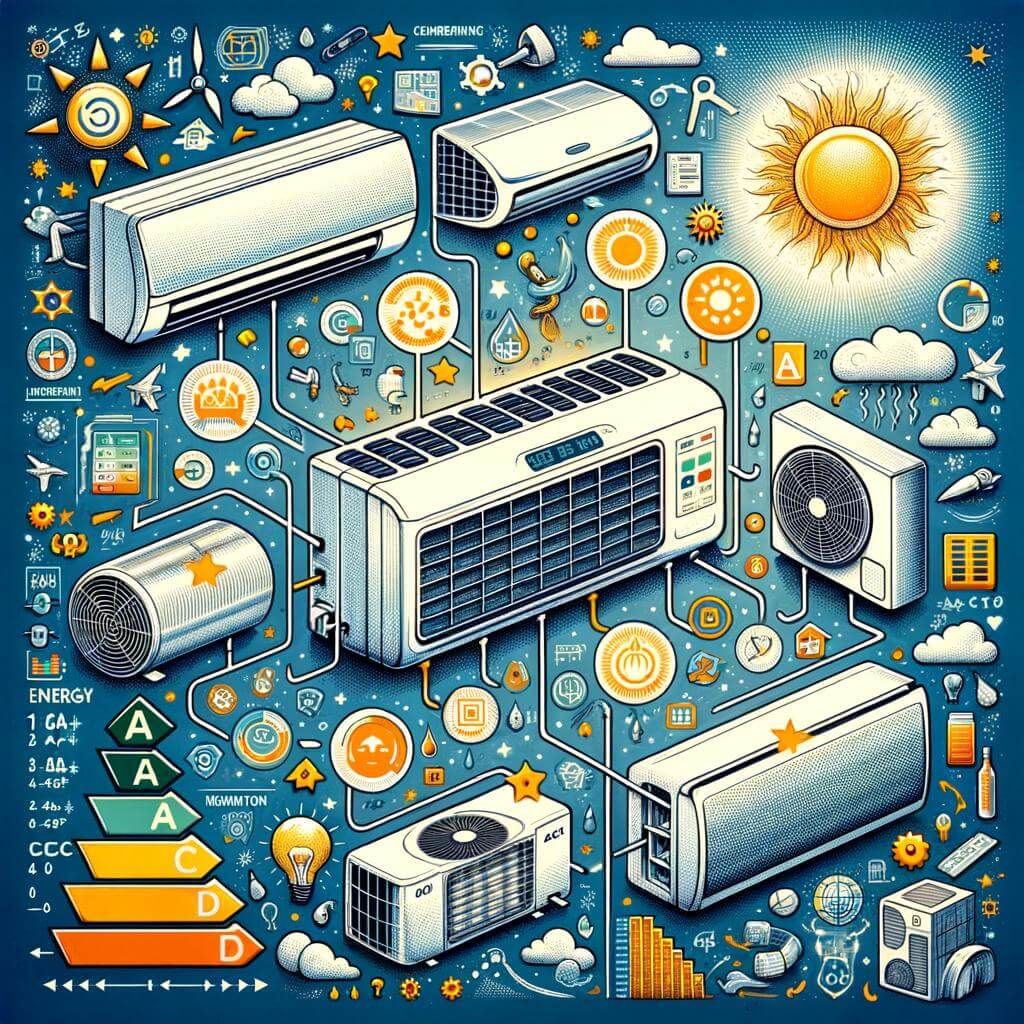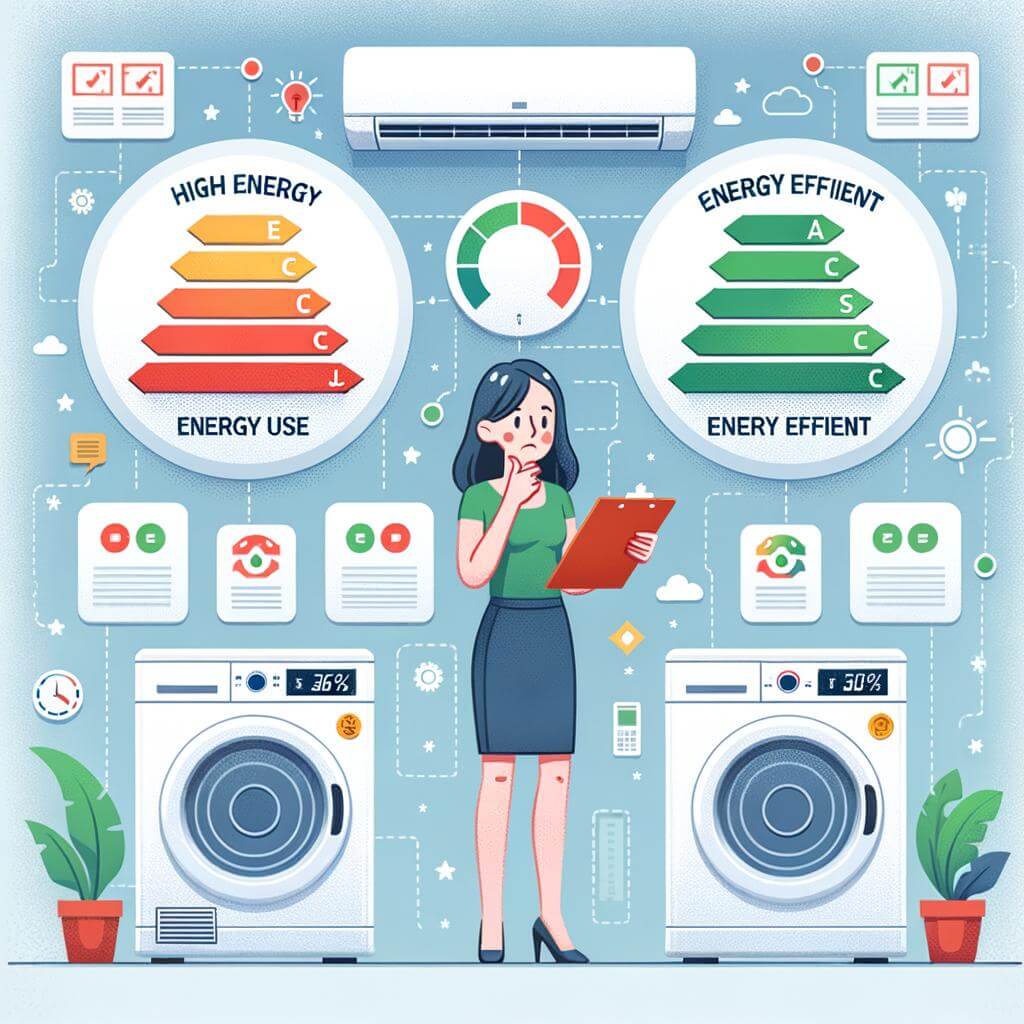Welcome to our comprehensive guide, ‘Decoding High Electric Bills: The Impact of Running Home A/C’. This detailed post will provide you with an insightful analysis of how constantly running your home’s air conditioning can significantly impact your electric bills. It is a fact that A/C units consume a large amount of electricity, which in turn, results in high energy costs. Our post is directed towards helping you understand these costs, the factors influencing them and ways to manage your A/C usage more efficiently. This user-friendly guide combines the expertise of energy professionals and the practicality of everyday solutions to keep your home comfortable while keeping your bills under control. This informative and useful post is a must-read for anyone looking for savvy ways to minimize their electric bills. So, join us as we take an enlightening dive into the world of electricity usage and savings.
Understanding the Connection Between A/C Usage and High Electricity Bills
Living in a continually warming world, the importance of our home air conditioning (A/C) systems has never been greater. Yet, at the end of each month, when the energy bill arrives, many homeowners are taken aback by the amount they’re being charged. What does this spike in energy costs boil down to? In a great number of cases, the substantial portion of households’ high energy expenses can be attributed to the use of air conditioning.
Diligently, let’s break down the electricity consumption of an average home A/C unit. The key factors that contribute to the energy usage are:
- Capacity of the Unit: A larger A/C naturally consumes more power.
- Age and Efficiency: Newer models are designed to be more energy-efficient.
- Insulation: Poorly insulated homes are harder to cool, leading to excessive A/C use.
- Frequency of use: The more an A/C is used, the higher the electricity consumption will be.
- Thermostat Settings: Lower settings require the unit to work harder and consume more power.
| Size of Home | Monthly Energy Consumption (kWh) | Cost per Month (US$) |
|---|---|---|
| Small (up to 1000 sq. Feet) | 1400 | 90 |
| Medium (up to 1600 sq. Feet.) | 1600 | 180 |
| Large (2000 sq. Feet. and above) | 2000 | 300 |
This table gives an idea of the possibilities of a home’s monthly energy consumption and cost, all aspect being equal, due to A/C usage. Be aware that these figures can vary depending on regional energy rates and patterns of use. It’s clear that, by understanding our A/C usage habits, we can make informed decisions that will not only benefit our wallets but also the environment.

How Your Home Air Conditioning System Consumes Power
Understanding the impact of your home’s air conditioning system on your energy bill requires a bit of awareness. This begins with knowing that an A/C system draws power in kilowatts (kW), and this power is charged in terms of kilowatt hours (kWh). These units are what you see detailed on your monthly electric bill. Electrical consumption for air conditioning can vary greatly depending on several factors:
- The size of your home
- The age and efficiency of the air conditioning unit
- Your thermostat’s settings
- The insulation in your home
To provide clarity, let’s delve deeper into the matter. An average home air conditioner might consume between 1.5 to 5 kW per hour – to get a better picture, you could construct a detailed comparison by noting down the rate of consumption over time. This would help you discern distinctly how much of your utility bill is attributed to the use of your A/C. Broadly, we can compile the following data to understand consumption better:
| Size of Area (in sq ft) | Average power consumption (in kW) |
|---|---|
| Up to 150 | 0.5 – 1.5 |
| 150 – 300 | 1 – 2 |
| 300 – 500 | 2 – 3 |
| Above 500 | 3 – 5+ |
While having this knowledge might not directly reduce your electric bill, it empowers you to make informed decisions about your energy consumption. Small adjustments such as raising your thermostat a few degrees or installing energy-efficient equipment can make a significant difference on your monthly bill.

Identifying Factors that Influence Air Conditioning Energy Usage
Most homeowners dread those soaring summer energy bills. While many factors contribute to your electricity usage, your air conditioning system is among the significant culprits. But what exactly causes your A/C to consume that amount of energy, leaving you shocked by your utility bill? There are several key factors you should understand.
Firstly, the size of your air conditioning unit is a vital element. A system that’s too big for your home not only leads to unnecessary energy consumption but can also create uneven cooling leading to discomfort. On the other hand, a system too small would require to run constantly, quickly racking up your utility costs. Secondly, how well your A/C is maintained can also heavily impact your bills. Regular maintenance ensures efficient operation, reducing the power consumption of your unit. An A/C with dirty filters, coils, or poorly lubricated fans will work much harder, leading to higher energy usage. Lastly, the settings of your thermostat play an essential part in your A/C energy usage. A lower setting means your A/C will have to work harder to reach that temperature, consuming a lot more electricity compared to a higher setting.
| Factor | Impact |
|---|---|
| Unit Size | Too big or too small units can lead to high energy costs. |
| Maintenance | Poorly maintained A/C units work harder, consuming more energy. |
| Thermostat Setting | Lower settings make your A/C work harder, using more electricity. |
Understanding these factors is a step towards managing your energy consumption effectively. By ensuring your unit is of the right size, well maintained, and operating at optimum thermostat settings, you can reduce not only your energy usage but ultimately lower your monthly bills.
Specific Ways to Reduce Your A/C Energy Consumption
For those hot summer months when air conditioning seems indispensable, it is crucial to know some specific strategies that help to keep a lid on your energy consumption. Air conditioning often uses up a substantial portion of your household’s energy budget, but by transferring a few habits, you can minimize this expense.
The first modification you can implement is maintaining your air conditioner. Regular service of your A/C unit will preserve it running efficiently. Cleaning or replacing filters once a month during the summer can make a significant impact.
Further, make sure your house is well sealed. Prevent cool air from escaping – seal all leaks in doors, windows, and ducts. Utilizing blinds and curtains on windows can also prevent heat from penetrating and raising the temperature inside.
Another adjustment you can make is the judicious use of your thermostat. Adjusting the thermostat by just a few degrees can lead to significant savings. Turning the thermostat up when you’re away from home, and utilizing fans alongside with the A/C, can make the room feel cooler without lowering the actual temperature.
Moreover, consider upgrading to an energy-efficient air conditioner. If your A/C unit is old, it may be worth investing in a newer, more energy-efficient model. You can check the EnergyStar ratings when purchasing a new unit.
| A/C Upgrades | Possible Energy Saving |
|---|---|
| High-Efficiency A/C Unit | Up to 20% |
| Variable Speed Air Handler | Up to 30% |
| Ductless Mini Split System | Up to 50% |
In conclusion, by taking these measures, you will not only save money on your electric bill but also contribute to environmental conservation. A win-win situation without a doubt!

Expert Tips to Optimize Your A/C for Lower Electricity Bills
So, you have noticed an uptick in your energy bill and you’re wondering how to cut down on the cost, right? Well, the way you use and maintain your air conditioning system can have a huge impact on your electricity bill. Here are a few expert tips to optimize your A/C for decreased energy consumption and lower utility bills.
Maintain Your A/C Regularly: Give your A/C regular TLC to keep it running efficiently. This includes tasks like cleaning or replacing filters frequently, inspecting coolant lines, and checking for leaks. A well-maintained A/C operates efficiently hence consuming less energy.
- Utilize a Programmable Thermostat: A programmable thermostat allows you to control your A/C usage in line with your schedule and needs, thus reducing wastage. When you’re out of the house, program the A/C to shut off or run at a lower speed.
- Invest in Insulation: Correct and sufficient insulation in your home can help to maintain cool temperatures, hence requiring less A/C usage. Consider adding insulation to less obvious places like your attic and basement.
- Use Energy-Efficient A/C Units: If your A/C is an older model, consider replacing it with an energy-efficient unit. Newer models often come with energy-saving features such as variable fan speeds and sleep settings.
The impact of these changes can be significant. Let’s take a look at two comparable households in the table below that shows the percentage difference in energy bills when these tips are applied.
| Household | Energy Bill Before Optimization | Energy Bill After Optimization | Percentage Savings |
|---|---|---|---|
| Household A | $250 | $200 | 20% |
| Household B | $400 | $280 | 30% |
As you can see, energy bill savings range from 20% to 30% for Households A and B respectively. Implementing small changes like these in handling your A/C system can lead to significant savings on your energy consumption and overall electric bill.

Making Smart Decisions: Choosing Energy Efficient A/C Systems for Your Home
Every month, we pay our electricity bills not knowing that we can cut down on the costs significantly by making smarter decisions in choosing the cooling systems for our homes. Your air conditioning system could be a culprit for high electricity bills. Notably, traditional A/C systems are notorious energy hogs. It’s time to shift the tide and consider energy efficient air conditioning systems as a long-term investment, aimed not only at reducing electricity costs but also at contributing to environmental conservation. Energy efficient air conditioners work by using less energy to produce the same cooling effect, making them a go-to choice for homeowners looking for ways to cut energy costs. When shopping around for a new air conditioner, there are several factors to consider, such as:
- The size of the unit
- The type of unit (e.g. split systems, ducted systems, etc.)
- The energy efficiency rating (EER) or seasonal energy efficiency ratio (SEER)
- The cost of the unit and installation
The Energy Efficiency Rating (EER) or the Seasonal Energy Efficiency Ratio (SEER) directly relates to energy consumption and your annual electricity bills. Air conditioners with higher EER or SEER ratings are more efficient and can save you a considerable amount on your energy bills. Refer to our comparative guide below for better understanding: “`html
| Energy Efficiency Ratio (EER) / Seasonal Energy Efficiency Ratio (SEER) | Energy Consumption | Annual Saving |
|---|---|---|
| 10 | High | Low |
| 13-14 | Medium | Medium |
| 16 and above | Low | High |
“` Therefore, when selecting a new A/C unit for your home, make sure to choose a high-efficiency model. These may be more expensive upfront, but the energy costs saved in the long run will be worth this initial investment.
The Way Forward
As we conclude, it’s clear that while our home air conditioning systems provide indispensable comfort, they also significantly factor into higher electric bills, especially during the sweltering summer months. Understanding the correlation between the use of A/C and your electricity bill is crucial in managing your expenses. However, it doesn’t mean we should sacrifice our comfort. Instead, knowledge about energy efficiency, regular maintenance, and smart usage can help control the expenses without sacrificing comfort. We hope this article has been insightful and beneficial in decoding the mysteries behind high electricity bills. Remember, your comfort doesn’t need to come at a high cost. Stay cool, stay comfortable, and stay on top of your electric bills.




